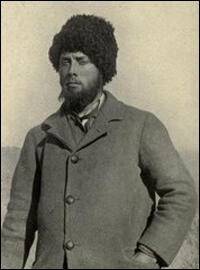On this day on 23rd September
On this day in 63 BC, Gaius Octavius Thurinus (Augustus) was born in the city of Rome. In 27 BC he became the first Roman emperor, reigning until his death in AD 14. Although he was always willing to listen to the advice of the Senate, he made all the important decisions. As censor, Augustus had the power to remove those people in the Senate that he disagreed with. He also took over the role of the tribunes who had in the past protected the people against those in power. As well as controlling all political decisions, Emperor Augustus was also in charge of the armed forces, the church and the civil service. Not even Julius Caesar had held so much power. Even though the Roman people had traditionally opposed being ruled by one person, after nearly twenty years of civil war they were willing to accept Augustus' dictatorship. Rome now ceased to be a republic. It was the beginning of the period that is known as Imperial Rome.
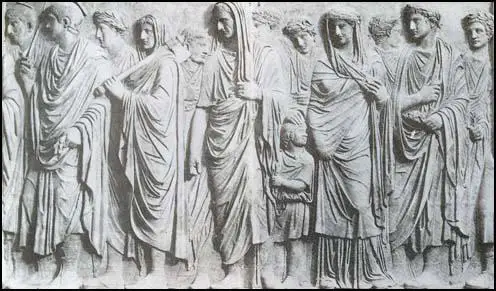
On this day in 1561 King Philip II of Spain forbids Spanish settlements in Florida. In 1554 Philip married Mary Tudor. The marriage was unpopular with the English people. They disliked the idea of having a foreign king. At that time the English particularly disliked the Spanish as they were seen as England's main rivals in Europe. In 1555 Philip become king when Charles V abdicated. Once in power Philip reactivated the Spanish Inquisition in an attempt to deal with the growth of Protestantism in Europe. In 1558 Mary Tudor began to get pains in her stomach and thought she was pregnant. This was important to Mary as she wanted to ensure that a Catholic monarchy would continue after her death. It was not to be. Mary had stomach cancer. When Mary died later that year. Henry VIII's other daughter, Elizabeth, a Protestant, became Queen of England, to stop Philip becoming King of England.
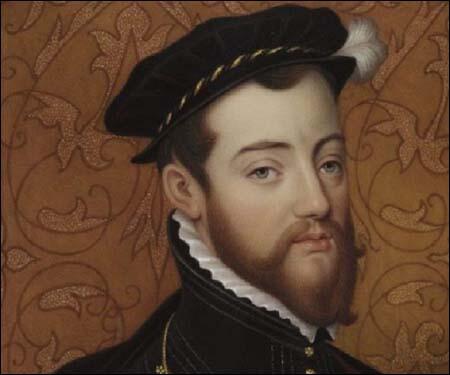
King Philip II of Spain
On this day in 1806 Meriwether Lewis and William Clark returned to St Louis from Pacific Northwest. The 30 man Lewis-Clark expedition had started on 14th May 1803. The 28-month expedition produced a considerable body of data concerning the topographical features of the county and its natural resources. They also provided details of animals and birds that lived in the territory they explored.
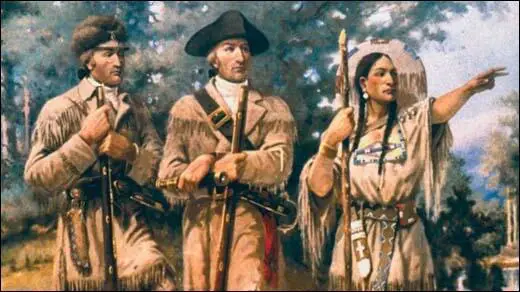
Meriwether Lewis and William Clark and local guide
On this day in 1862 Otto von Bismarck was appointed Prime Minister and Foreign Minister of Prussia by King Wilhelm I. In 1870 Bismarck deliberately provoked the Franco-Prussian War and as a result was able to obtain Alsace and Lorraine from France. To counteract the danger of Russia and France joining forces against Germany, Chancellor Bismarck formed the Triple Alliance in 1879. Bismarck dealt severely with trade unionists but in an effort to reduce the appeals of socialism, Bismarck he introduced the world's first modern welfare scheme which provided sickness, accident and old age benefits (1883-87).
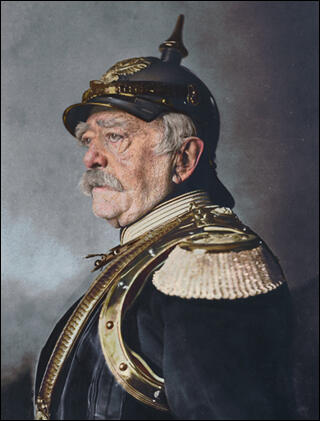
On this day in 1863 Mary Church Terrell was born in Memphis, Tennessee, on 23rd September, 1863. Both her parents, Robert Church and Louisa Ayers, were both former slaves. Robert was the son of his white master, Charles Church.
During the Memphis race riots in 1866 Mary's father was shot in the head and left for dead. He survived the attack and eventually became a successful businessman. He speculated in the property market and was considered to be the wealthiest black man in the South.
Mary was an outstanding student and after graduating from Oberlin College, Ohio, in 1884, she taught at a black secondary school in Washington and at Wilberforce College in Ohio. Through her father, Mary met Frederick Douglass and Booker T. Washington. She was especially close to Douglass and worked with him on several civil rights campaigns.
After a two year travelling and studying in France, Germany, Switzerland, Italy and England (1888-1890), Mary returned to the United States where she married Robert Heberton Terrell, a lawyer who was later to become the first black municipal court judge in Washington.
In 1892 Church's friend, Tom Moss, a grocer from Memphis, was lynched by a white mob. Church and Frederick Douglass had a meeting with Benjamin Harrison concerning this case but the president was unwilling to make a public statement condemning lynching.
Church was an active member of the National American Woman Suffrage Association and was particularly concerned about ensuring the organization continued to fight for black women getting the vote. With Josephine Ruffin she formed the Federation of Afro-American Women and in 1896 she became the first president of the newly formed National Association of Colored Women.
In 1904 Church was invited to speak at the Berlin International Congress of Women. She was the only black woman at the conference and determined to make a good impression she created a sensation when she gave her speech in German, French and English.
During the First World War Church and her daughter, Phillis Terrell joined Alice Paul and Lucy Burns of the Congressional Union for Women Suffrage (CUWS) in picketing the White House. She was particularly upset when in one demonstration outside of the White House, leaders of the party asked the black suffragist, Ida Wells-Barnett, not to march with other members. It was feared that identification with black civil rights would lose the support of white women in the South. Despite pressure from people like Mary White Ovington, leaders of the CUWS refused to publicly state that she endorsed black female suffrage.
In 1909 Church joined with Mary White Ovington to form the National Association for the Advancement of Coloured People (NAACP). The first meeting of the NAACP was held on 12th February, 1909. Early members included Josephine Ruffin, Jane Addams, Inez Milholland, William Du Bois, Charles Darrow, Charles Edward Russell, Lincoln Steffens, Ray Stannard Baker, and Ida Wells-Barnett.
Church wrote several books including her autobiography, A Colored Woman in a White World (1940). In the early 1950s she was involved in the struggle against segregation in public eating places in Washington.
Mary Church Terrell died in Annapolis on 24th July, 1954.
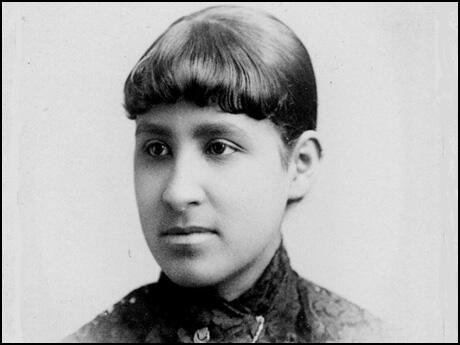
On this day in 1883 Gregory Zinoviev was born in Yelizavetgrad, Ukraine. The son of a Jewish farmers, Zinoviev received no formal schooling and was educated at home. A Bolshevik he took part in the 1905 and 1917 revolutions. At the First World Congress of the Comintern in March 1919, he was elected chairman of the Executive Committee. Joseph Stalin saw him as a rival for the leadership of the Soviet Union and arranged for him to be executed on 25 th August 1936.
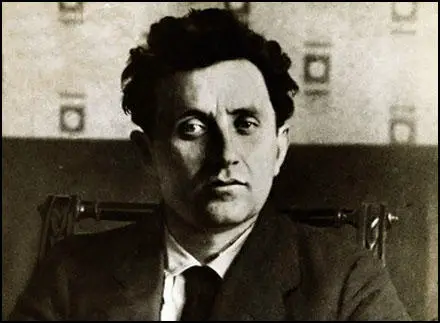
On this day in 1922 Bertolt Brecht's "Drum in the Night" premiered in Germany. Brecht asked the influential Berlin critic Herbert Ihering to come to Munich for the first night. Ihering was impressed with the play: "The twenty-four-year-old poet Bert Brecht has changed the literary physiognomy of Germany overnight. With Bert Brecht a new tone, a new melody, a new vision has entered our time... Brecht is impregnated with the horror of this age in his nerves, in his blood. This horror creates a pallid atmosphere, a half-light round men and things... Brecht physically feels the chaos and putrid decay of the times. Hence the unparalleled force of his images. This language can be felt on the tongue, on the palate, in one's ears, in one's spine... It is brutally sensuous and melancholically tender. It contains malice and bottomless sadness, grim wit and plaintive lyricism."
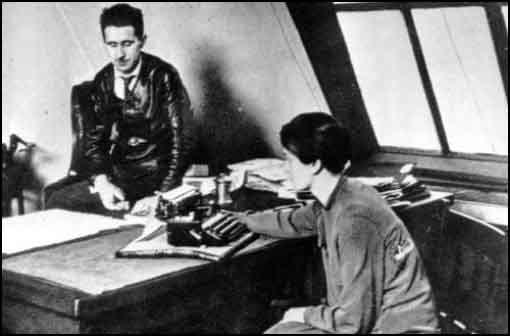
On this day in 1938 British premier Neville Chamberlain flew to Munich to meet Adolf Hitler. A Mass Observation poll found that 44 per cent of those questioned expressed themselves to be "indignant" at Chamberlain's policy, while only 18 per cent were supportive. Of those men who were questioned, 67 per cent said they were willing to fight to defend Czechoslovakia. On the day that he returned to London, a crowd of over 10,000 people massed in Whitehall, shouting "Stand by the Czechs!" and "Chamberlain must go!"
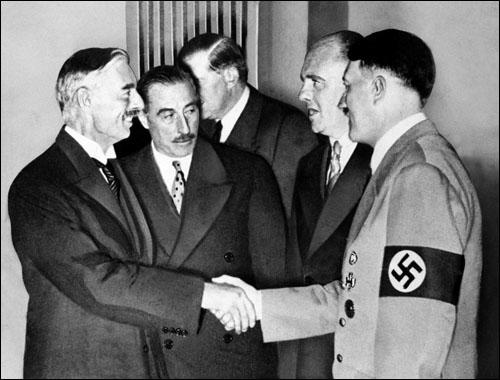
On this day in 1939 Sigmund Freud died in London An Austrian citizen was the founder of psychoanalysis, a clinical method for treating psychopathology through dialogue between a patient and a psychoanalyst. On 12th March, 1938, Adolf Hitler announced Anschluss (the annexation of Austria into Nazi Germany). During the spring of 1938, it was reported that some 500 Austrian Jews chose to kill themselves to avoid humiliation, unbearable anxiety, or deportation to concentration camps. In March the authorities felt compelled to issue a denial of the "rumours of thousands of suicides since the Nazi accession to power." The press release added that "from March 12 to March 22 ninety-six persons committed suicide in Vienna of whom only fifty were directly connected with the change in the political situation in Austria." Freud arrived in England on 6 th June 1938.
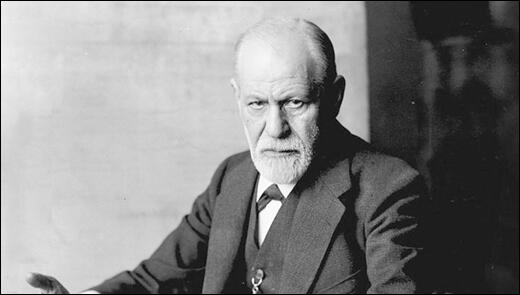
On this day in 1941 General Charles de Gaulle forms government in exile in London. The following day he made a radio broadcast calling for French people to continue fighting against the German Army. Whereas as President Franklin D. Roosevelt in the USA recognized Vichy France, Winston Churchill refused and backed de Gaulle as leader of the "Free French". Henri-Philippe Petain responded by denouncing de Gaulle. On 4th July, 1940, a court-martial in Toulouse sentenced him in absentia to four years in prison. At a second court-martial on 2nd August 1940, sentenced him to death.
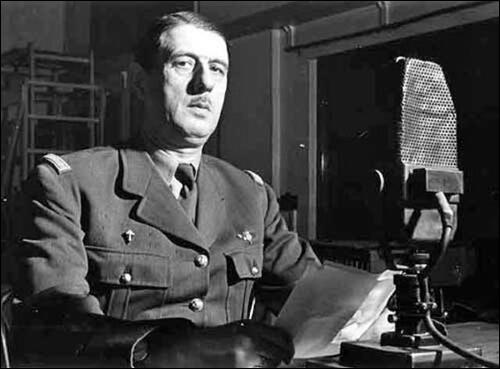
On this day in 1941, the first gas murder experiments are conducted at Auschwitz concentration camp. Auschwitz was built 150 miles outside from Warsaw in May 1940. The commander was Rudolf Hoess and the camp was staffed by SS Death's Head units. At first it housed people from Poland but later large numbers of Jews and soldiers from the Red Army also arrived. Bathhouses disguised as gas chambers were added. Hoess introduced Zyklon-B gas, that enabled the Nazis to kill 2,000 people at a time. Hess was promoted to Deputy Inspector General and took charge of the Schutzstaffel (SS) department that administered German concentration camps. At his trial Rudolf Hoess admitted: "I commanded Auschwitz up to 1st December 1943 and estimate that at least 2,500,000 victims were killed and disposed of there by gassing and burning; at least a further half million died of starvation and illness, which makes a total of 3,000,000 dead. The number represents about 70 or 80 per cent of all the people who were sent to Auschwitz as prisoners. Very young children, being incapable of working, were killed as a matter of principle."
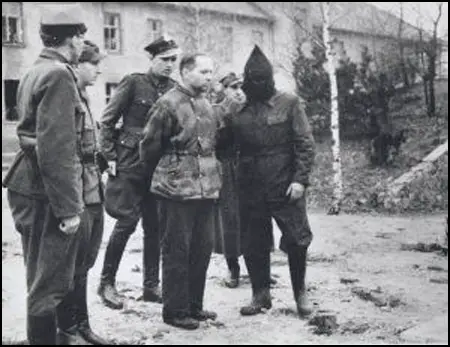
On this day in 1952 Richard Nixon made what became known as "Checker's" speech. Nixon had been selected by Dwight D. Eisenhower as his running mate in the presidential election of 1952. However, it was reported that Nixon had a political fund of $18,235, maintained by his backers, which reimbursed him for political expenses. With pressure building for Eisenhower to demand Nixon's resignation from the ticket the senator went on television to deliver an address to the nation. It was heard by about 60 million Americans, the largest television audience up to that point. The speech would be remembered for the gift which Nixon had received, but which he would not give back: "a little cocker spaniel dog ... sent all the way from Texas. And our little girl - Tricia, the 6-year-old - named it Checkers." The speech prompted a huge public outpouring of support for Nixon and Eisenhower allowed him to remain on the team.
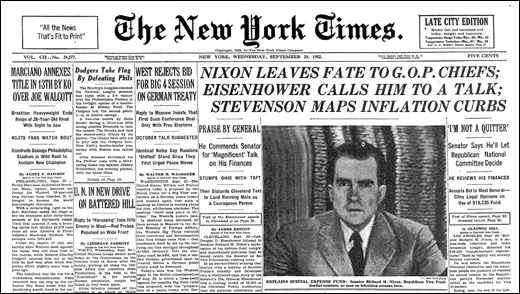
On this day in 1955 and all-white jury found Roy Brant and John William Milam not guilty of the murder of black teenager Emmett Till in Sumner, Mississippi. The Emmett Till case, publicized by writers such as William Bradford Huie, led to demonstrations in several northern cities about the way African Americans were being treated in the Deep South. Till's murder contributed to congressional passage of the Civil Rights Act of 1957: it authorized the U.S. Department of Justice to intervene in local law enforcement issues when individual civil rights were being compromised.
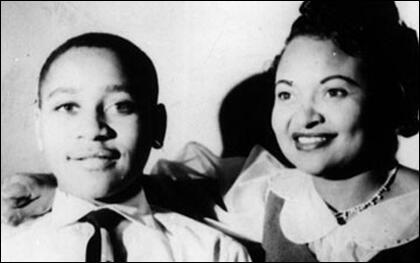
On this day in 1957 Elizabeth Eckford and eight other African American students attempted to enter Little Rock Central High School, a school that previously had only accepted white children. The governor of Arkansas, Orval Faubus, was determined to ensure that segregation did not take place and sent the National Guard to stop the children from entering the school. On 24th September, 1957, President Dwight D. Eisenhower, went on television and told the American people: "At a time when we face grave situations abroad because of the hatred that communism bears towards a system of government based on human rights, it would be difficult to exaggerate the harm that is being done to the prestige and influence and indeed to the safety of our nation and the world. Our enemies are gloating over this incident and using it everywhere to misrepresent our whole nation. We are portrayed as a violator of those standards which the peoples of the world united to proclaim in the Charter of the United Nations."
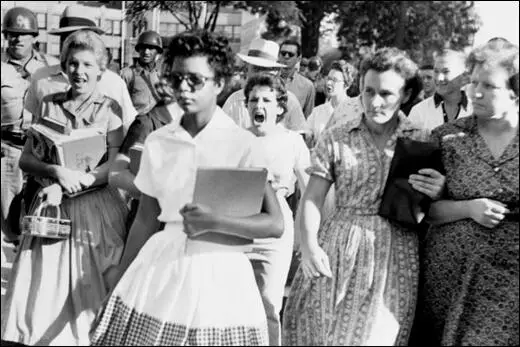
On this day in 1973 Morgan Philips Price died. As a journalist working for the Manchester Guardian and the Daily Herald he reported on the First World War, the Russian Revolution and Nazi Germany. Price is also the author of The Diplomatic History of the War (1914), My Reminiscences of the Russian Revolution (1921) and My Three Revolutions (1969).
